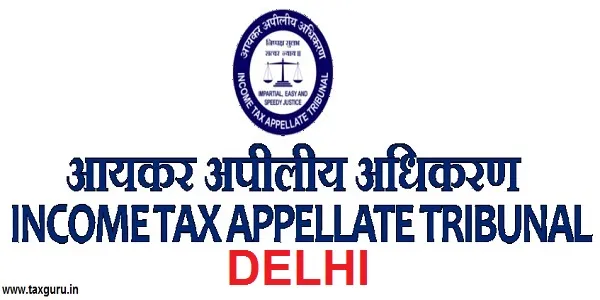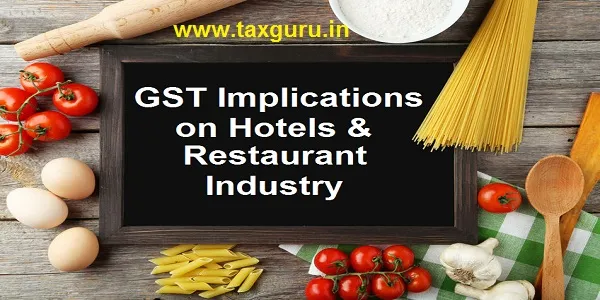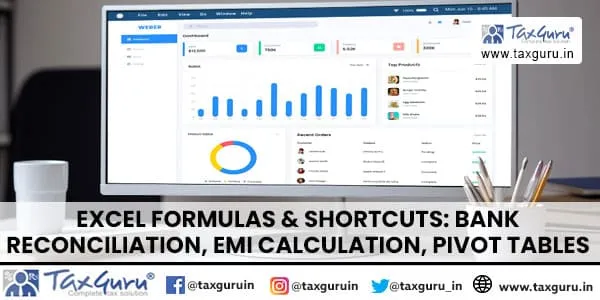Case Law Details
Pegasus Pharmaco India Pvt Ltd. Vs Commissioner Central Goods & Service Tax (CESTAT Delhi)
a) Balaji has not commenced commercial production prior to the cut-off date of 31.3.2010 even though a single invoice was issued and therefore, it was not entitled to the benefit of the exemption notification nor has it claimed it until a few days before the slump sale agreement.
b) The so called slump sale agreement between Balaji and the assessee was, in essence, only an agreement by which the benefit of the exemption notification claimed by Balaji was transferred to the assessee to enable it to claim the benefit on the pharmaceuticals manufactured by it in its own plant (now renamed Unit I) on which the assessee had already availed the full benefit of exemption up to 10 years. Nothing in the business of Balaji remained with the assessee after transfer as the product line of Balaji was discontinued, the name was discontinued (along with it any possible goodwill), the machinery was disposed of, the location was changed to the assessee’s own plant.
c) The MOU signed between Unit I and Unit II is essentially one signed by the assessee with itself with two of its officers, viz., the Managing Director and General Manager signing as two parties whereby its own plant and land was leased to itself to manufacture the same goods which it had been manufacturing claiming the benefit of the area based exemption notification.
d) In essence, the slump sale agreement and the MOU are but a method employed to claim the benefit of the exemption notification for the pharmaceuticals manufactured by the assessee in its own plant beyond the maximum permissible period of ten years. Thus, paying about Rs. 25 lakhs under the slump sale agreement, the assessee has claimed exemption from duty beyond ten years of about Rs. 23
e) The Circulars of the CBEC, which allowed the benefit of exemption when the ownership of the Unit has changed or new machinery is added or new product lines are added or the factory is shifted to a new location, do not come to the aid of the assessee for the reason that in this case, the only thing which changed with the slump sale agreement which the assessee signed with Balaji and the MOU which it signed with itself is the claim of the benefit of the exemption by Balaji and its transfer to the assessee so as to extend the benefit of the exemption to the pharmaceuticals manufactured by it beyond 10 years.
In view of the above, we find that the order passed by the Commissioner is correct in denying the benefit of exemption under notification No. 49/2003 and confirming the demand of duty under section 11A along with interest from the assessee under section 11AA of the Central Excise Act, 1944.
FULL TEXT OF THE CESTAT DELHI ORDER
These three appeals have been filed assailing the same Order-in-Original1 dated May 01, 2019 passed by the Commissioner of Central Goods and Service Tax, Dehradun and are therefore being disposed of together. Appeal No. 50093/2020 is filed by the assessee Pegasus Pharmaco India, while appeal No. 52716 of 2019 is filed by C S Rao assailing the penalties imposed on him. Appeal No. 52893/2019 is filed by Raghuveer Beti assailing the penalties imposed on him.
2. We have heard both sides and perused the records.
3. The facts of the case, in brief, are that M/s. Pegasus Pharmaco India Pvt Ltd.2 situated in Khasra No. 112, Village Matlabpur, Roorkee, Uttarakhand, is a manufacturer of pharmaceutical products. It had availed area based notification 49/2003-CE dated June 10, 2003 which was available in the location of its premises. However, the exemption notification was available to an assessee for ten years only, which period came to an end. Thereafter, the assessee purchased unit namely M/s. Shri Balaji Packing Industries3 695, Nanhera, Ananthpur, Bhagwanpur, Roorkee. Balaji was initially a partnership firm and was thereafter converted into a proprietary firm of Shri Yogesh Kumar Sharma. It was engaged in manufacture of cartons. The assessee purchased Balaji under the slump sale agreement i.e., an agreement in which the entire business is bought without valuing its individual components. The agreement was signed on February 12, 2016 and thereafter it was named by the assessee as Unit No.II of M/s. Pegasus Pharmaco India Pvt Ltd. while its original unit was named Unit No. I. Within 20 days of purchasing Balaji, the assessee shifted it to the assessee’s own address viz., Khasra No. 112, Matlabpur village Roorkee. (now called Unit No. I). Instead of manufacturing cartons, which was the product of Balaji, the assessee started manufacturing pharmaceutical products using the plant and machinery of Unit No. I, and started claiming exemption under Notification No. 49/2003 in the name of Unit No. II. The machinery meant for manufacture and production of cartons by Balaji were sold by the assessee. Meanwhile, in the original premises of Balaji, Shri Yogesh Kumar Sharma, the original proprietor continued to run a unit to manufacture cartons, i.e., same products as before under the name of Shri Ram Packing Industries which was also a proprietary firm. In other words, the only change that has happened, so far as the business of Shri Yogesh Sharma was concerned, was instead of manufacturing and selling cartons in the name of Balaji, he started doing so in the name of Shri Ram Packing Industries.
4. There was no change in the business of the assessee also inasmuch as it continued to manufacture pharmaceutical products which it was manufacturing earlier. No separate legal entity was created with the name of Unit II and both Unit I and II are part of same legal entity namely M/s. Pegasus Pharmaco India Pvt Ltd., the assessee.Both were located in the same premises. Initially, for 20 days after acquisition of Balaji, Unit No. II is said to have operated from the original premises of M/s. Balaji. Further, the same machinery which were being used to manufacture pharmaceutical in the name of Unit No. 1 were used to manufacture the same pharmaceutical products in the name of Unit II. A Memorandum of Understanding4 was signed between the so called Units I and II whereby the land and machinery of Unit No. I were leased to Unit No. II. In other words, there was an agreement between two arms of the same legal entity effectively operating from the same premises and using the same machinery to manufacture the pharmaceutical products. This MOU was signed between Mr Raghuveer Beti, Managing Director of M/s. Pegasus Pharmaco India Pvt Ltd. representing its unit No. I and Shri C S Rao, General Manager of the same company representing Unit No.II. In other words, the MOU was signed by the assessee with itself with the Managing Director and General Manager of the assessee signing on behalf of the two units.
5. Receiving intelligence that the assessee was wrongfully availing the exemption Notification No. 49/2003-CE dated June 10, 2003, its premises were searched by the officers on March 15, 2016 and it was noticed that the benefit of exemption Notification to the assessee had ended on February 20, 2016. Days prior to this date, it had purchased Balaji under the slump sale agreement. Balaji was operating from rented premises. Balaji was a small scale industry and has not crossed threshold limit, to render it liable to pay Central Excise duty. It had also not availed the benefit of area based exemption Notification No. 49/2003. Just 20 days before the sale, M/s. Balaji opted for the benefit of exemption Notification No. 49/2003 and thereafter sold its business in a slump sale agreement to the assessee who called it Unit No. II and shifted its business to its own premises. After 8 days, on March 10, 2016, the assessee sold the entire plant and machinery of Balaji, entered into an MOU with its own Unit No. I and started manufacturing pharmaceuticals in its old premises using its own machinery in Unit I. The case of the Revenue is that after completing its entitlement of exemption for 10 years, the assessee purchased Balaji which manufactures cartons under a slump sale agreement and called it Unit No. II. Nothing in the business of Balaji remained. The premises were changed to assessee’s own place. The entire machinery of Balaji were sold. No cartons were manufactured. The assessee is using its own machinery in Unit I to manufacture pharmaceuticals from its own premises.
6. A show cause notice was issued to the appellants herein by the Commissioner of Central Tax, Dehradun, paragraph 13 of which reads as follows:-
“13. M/s Pegasus Farmaco India Pvt. Ltd., Unit-II, Khasra No. 112, Matlabpur Village, Roorkee are, therefore, required to show cause to the Commissioner, Central Goods & Services Tax, Commissionerate, E-Block, Nehru Colony, Dehradun as to why:-
a) Benefit of exemption from Central Excise duty under the Notification 49/2003-CE dated 10.06.2003 for the period 17.02.2016 onwards should not be denied to them;
b) Central Excise Duty amounting to Rs. 23,04,75,983/- (Rupees Twenty Three Crore Four Lakh Seventy Five Thousand Nine Hundred and Eighty Three Only) as detailed in Annexure-A to this notice on excisable goods namely pharmaceutical goods/P.P. Products (Tablets and capsules) falling under CETSH 3004 of the Central Excise Tariff Act 1985 manufactured and cleared, for the period 20.04.2016 to 06.2017, should not be demanded and recovered from them under provisions of Section 11A(4) of Central Excise Act, 1944;
c) Applicable interest on above duty should not be demanded and recovered from them under Section 11AA of Central Excise Act, 1944; and
d) Penalty should not be imposed upon them under Section 11 AC (1)(a) of Central Excise Act, 1944 read with Rule 25 of Central Excise Rules, 2002.
14. Whereas, Sh. Raghuveer Beti, Director of the noticee, Shri C. S. Rao, Plant Head of the noticee, Shri Yogesh Kumar Sharma, Proprietor of M/s Shri Balaji Packing Industries & M/s Shri Ram Packing Industries and Shri Pramod Kumar Sharma, Village Manakpur, Adampur Roorkee, are also hereby required to show cause within 30(thirty days) of the receipt of this show cause notice to the Commissioner, Central Goods & Services Tax, Commissionerate-Dehradun, E-Block, Nehru Colony, Dehradun, as to why penalty under Rule 26 of Central Excise Rules, 2002, should not be imposed upon them.”
7. The Commissioner passed the impugned order, the operative part of the which is as follows:-
1) I deny the benefit of Central Excise duty exemption under Notification No. 49/2003-CE dated 10.06.2003 to M/s Pegasus Farmaco India (P) Ltd [Unit-II] Khasra No. 112, Village-Matlabpur, Roorkee;
2) I confirm the demand of Central Excise duty amounting to 23,04,75,983/- (Rupees Twenty Three Crore Four Lac Seventy Five Thousand Nine Hundred Eighty Three only) from the party for the period 20.04.2016 to 30.06.2017 under Section 11A(4) of Central Excise Act, 1944;
3) I confirm Interest as per applicable rates on the above confirmed demand of duty under Section 11AA of Central Excise Act’ 1944;
4) I impose a penalty of Rs. 23,04,75,983/- (Rupees Twenty Three Crore Four Lac Seventy Five Thousand Nine Hundred Eighty Three only) on the party under Section 11AC(1)(c) of Central Excise Act, 1944;
5) I impose the penalty of Rs. 2,00,00,000/- (Rupees Two Crore only) on Sh Raghuveer Beti, Director of the party under Rule 26 of the Central Excise Rules, 2002;
6) I impose the penalty of Rs. 50,00,000/-(Rupees Fifty Lakhs only) on Sh C S Rao, Plant Head of the party, under Rule 26 of the Central Excise Rules, 2002;
7) I impose the penalty of Rs. 5,00,000/- (Rupees Five Lakhs only) on Shri Yogesh Kumar Sharma (proprietor of M/s Shri Balaji Packing Industries and M/s Shri Ram Packing Industries) under Rule 26 of the Central Excise Rules, 2002;
8) I impose the penalty of Rs. 5,00,000/- (Rupees Five Lakhs Pramod Kumar resident of Village-Manakpur, Adampur, Roorkee under Rule 26 of the Central Excise Rules, 2002.”
8. Aggrieved, the assessee filed an appeal on the following grounds:-
1) Balaji started commercial production before March 31, 2010.
2) Statements by the proprietor of Balaji, Shri Yogesh Sharma were tendered under duress.
3) The appellant has entered into slump sale agreement and then shifted the unit of Balaji to its own premises.
4) The recommencement of manufacturing activities by the seller in its old premises shall not in any way hit the exemption available to the appellant.
5) The appellant is entitled to avail the benefit of exemption under Notification No. 49/2003-CE dated 10.06.2003.
9. Accordingly, it has been prayed to hold that the assessee was entitled to benefit of exemption of Notification and consequently drop the demand along with the interest, quash the penalty and allow other consequent reliefs.
10. In their appeals, Raghuveer Beti and C S Rao, have asserted that the assessee was entitled to the benefit of exemption Notification and consequently the penalties imposed on them under Rule 26 of the Central Excise Rules need to be set aside.
11. It is submitted that Balaji was entitled to the benefit of the exemption notification because it had started commercial production of goods (cartons) prior to the cut off date of 31 March 2010, though it did not claim the benefit until few days before it was sold to the assessee. Balaji had commenced production prior to cut off date, March 31, 2010 and the first sale invoice No. 1 was issued on 31.3.2010. Chartered Accountant’s certificate to that effect was also submitted. It is further submitted that a declaration was filed with the office of District Industries Centre (DIC) although Balaji had not filed part II of the acknowledgement with the DIC. Non-filing of part II of the acknowledgement with the DIC does not take away the eligibility of the exemption under Central Excise as it was not a condition to the notification. It has further been submitted that in paragraph 9.9 and 9.10 of the impugned order, the Adjudicating Authority has mentioned that the electricity connection of 63 KVA was obtained by Balaji only on April 24, 2010 and therefore, it was inferred by him that the production could have taken place only after that day. It is submitted that prior to this date, the appellant had obtained a generator on rent of Rs.5000/- for the period March 25, 2010 to April 24, 2010. So long as it is on record that Balaji had the generator and existence of the same has also been recorded in its books of accounts, manufacture was possible.
12. The Adjudicating Authority held that the machines and inputs required for manufacture were brought into the State of Uttaranchal only on March 30, 2010 and it was very unlikely that Balaji could have undertaken the manufacturing activity on the same date. It has been submitted on behalf of the appellant that in view of the deadline of March 31, 2010, Balaji had worked 24 X 7 and commenced the production. Further, the manufacture of cartons does not require too much of heavy machinery, all the machinery was installed on the same day, manufacturing had been commenced and the first invoice was issued on March 31,2010. Therefore, the commercial production had begun on that day.
13. The Adjudicating Authority has, based on sale figures, inferred that Balaji had undertaken only trial production until June 2010 which inference was not warranted. In fact, commercial production began on 31 March 2010 itself but there were no orders until June 2010 when production on a large scale commenced. Since the production began on 31 March, 2010, Balaji was eligible for benefit of Notification No. 49/2003.
14. It has been submitted hat the statement of Shri Yogesh Kumar Sharma, proprietor of Balaji was taken under duress. The statement was typed and has been recorded categorically as follows:-
“ The above statement tendered by mte is true & correct to the best of my knowledge and nothing has been hidden by me. The above said statement has been typed by me as my handwriting is not very comprehensible. I have read the said statement properly and signed the same after verifying and understanding its contents.”
15. The above text also does not establish that the statement was taken peacefully and not under duress. Yogesh Kumar Sharma has filed an affidavit on July 06, 2018 to clarify his stand. Therefore, the statement of Yogesh Kumar Sharma should be treated as involuntary given under duress.
16. It has further been submitted by the assessee that Balaji was purchased by it under slump sale agreement duly paying court fees. Thereafter, it was renamed Unit No. II and shifted to its own premises. Unit No. I has followed due process and rented the premises to Unit No. II and even paid the Service Tax and GST on the rent received from Unit No. II. The statement of Rajesh Singh that Unit I was closed at the end of February, 2016 and no production activity was being carried out up to March 2016 and from April, 2016, the production was carried out in the name of Unit No. II was not correctly interpreted. In his statement Rajesh Singh categorically stated that production had commenced but it was in Unit named as Unit No. II.
17. Regarding recommencement of manufacturing activity by Yogesh Kumar, the owner of Balaji after the slump sale in the name of Shri Ram Packing Industries, it was submitted that the assessee had sold the machines which it received as part of slump sale agreement. The Chartered Accountant Piyush Jindal had issued a certificate prior to and after shifting of the machinery. It is further submitted that Yogesh Kumar Sharma proprietor of Balaji had retracted his original statement dated 22.12.2016 on 07.2018 stating as follows:
“that I was under duress and tremendous stress on 22.12.2016 when my statement was recorded by the investigating officers which lead to tendering of incorrect facts, whereas the actual fact of the matter are that I have sold the entire manufacturing unit as to M/s. Pegasus Pharmaco India Private Limited in terms of slump sale agreement and they have continued the business of the said manufacturing unit with effect from 12th February 2016 in the same premises under a separate agreement/ arrangement after which they have shifted their production facilities to some other place, wherein they duly shifted the entire infrastructure including machineries etc. sold by me from the said premises.”
18. It was further submitted that M/s. A V Print Pack had issued VAT invoices No. 1533 dated 09.03.2016 for sale of old machines to M/s. Shri Ram Packing Industries. Thus, Yogesh Kumar Sharma has, after selling Balaji and its machinery, set up a new manufacturing unit in the name of Shri Ram Packing industries.
19. It has also been submitted that shifting of Unit to new premises will not disentitle the appellant to take the benefit of exemption notification as clarified by Central Board of Excise and Customs in Circular No. 960/3/2012 dated 17.02.2012. and plant or machinery or the production of new products by a eligible unit after the cut off date but during the exemption period of ten years will also not disentitle the appellant to the notification. As per Circular No. 939/29/2010-CX dated 22.12.2010 exemptions given under Notification No. 49 and 50 of 2003 dated 10.06.2003 would allow the new Units or existing Units, which have undergone substantial expansion before the cut off date i.e. on or before 31.03.2010.
20. In view of the above, it is prayed that the impugned order may be set aside.
21. Learned Departmental Representative supports the findings of the impugned order and asserts that it calls for no interference.
22. We have considered the submissions of both the sides.
23. The first question to be answered is whether Balaji had commenced commercial production prior to 31.3.3010 at all which was the cut-off date for the benefit of the exemption notification. It is not disputed that the first invoice was issued to Balaji on 03.2010. The exemption notification was available to “new industrial units which commenced commercial production on or before 7th day of January, 2003 but not later than 31st day of March, 2010.” Therefore, the date of commencement of commercial production of the unit becomes relevant. In the statement submitted by Balaji before the District Industrial Centre (DIC), on the basis of which acknowledgement in part I was issued to Balaji, the proposed the date of commercial production was shown as December, 2010. Part II of the declaration which indicates the actual date of commencement part of commercial production was not filed by Balaji. The machinery was purchased by Balaji on 29.03.2010 from M/s. M R Engineering Works and raw material was purchased from M/s. Uttaranchal Pulp and Paper Mills (P) Ltd. on the same date. The machinery had not even entered the State of Uttaranchal before 30.03.2010. It would not be unreasonable to infer that after purchase of machinery and raw material, it will take a few days to set up the machinery, initiate production, conduct trials and then finally starting commercial production. The appellant submitted that all these were accomplished within 24 hours of purchase of machinery and raw material by Balaji and commercial production was commenced on 31.03.2010 itself. In fact, at that time Balaji had not even an electricity connection which was obtained much later on 24.4.2010. Prior to this date, it had rented a generator for the period from 25.3.2010 to 24.4.2010 and about Rs.5000/- was paid as rent for the purpose. Subsequent sale of the goods during April, 2010 to March, 2011 were as follows:
S.No. | Period | Sale Value (in Rs) |
| 1. | April’ 2010 to June’ 2010 | 1,23,794/- |
| 2. | July’ 2010 to September’ 2010 | 12,16,641/- |
| 3. | October’ 2010 to December’ 2010 | 12,34,298/- |
| 4. | January’ 2011 to March’ 2011 | 14,38,621/- |
24. From the above figures, it would not be unreasonable to conclude that commercial production commenced only in July, 2010 or a little before that. This is consistent with the declaration of Balaji before the DIC that it intended to commence the commercial production by December 2010.
25. As submitted on behalf of the appellant, the fact that Balaji did not submit acknowledgement part 2 before DIC is not relevant to the present case. However, what is relevant is whether or not there was commercial production of final products prior to 3.2010. Undisputedly, they had no electricity connection by then and were operating on a hired generator. The raw material required for manufacture as well as machinery were bought on 29.3.2010. We are unable to agree with the learned Counsel for the appellant that within 24 hours of issue of invoices for purchase of raw material and machinery on 29.03.2010, Balaji has completed installation of the machinery, processed the raw material, has started and completed trials and even started commercial production of the goods on 30.3.2010. No doubt, an invoice was issued on 31.3.2010 for sale of some goods. However, the exemption Notification does not require any production by the Unit before the cut off date but commercial production. Even the goods which are produced during trials can be sold by the factory. The invoice issued indicates some production and in our considered view cannot be termed as commercial production. The submission of the learned counsel was that in view of the cut off date for the notification, Balaji completed all these activities working 24×7 and started commercial production within 24 hours. This argument holds no water if one considers that Balaji intended to commence commercial production only by December 2010 as per the declaration filed with the DIC. Further, if it was so keen on availing the benefit of the notification that it completed all these activities within 24 hours, it would have claimed the benefit of the notification which it never did until a few days before selling it to the assessee. From the factual matrix of this case, we can only infer that Balaji had purchased machinery and raw material, rented the generator set for a short while and started setting up and conducted some trials. Meanwhile, it has received electricity connection on April 24, 2010 and started commercial production. We, therefore, answer the first question raised in the appeal in favour of the Revenue and against the assessee and hold that Balaji has not started the commercial production by March 31, 2010 and the condition of the Notification is “commencement of commercial production” and not “commencement of any production”.
26. It has been submitted on behalf of the appellant that Yogesh Kumar Sharma, the proprietor of Balaji had tendered his statement under duress on December 24, 2016 and thereafter retracted the same on July 06, 2018 through an affidavit to clarify his stand. Any person who is under duress can make a wrong statement. However, once the duress /pressure of the officer is removed, it is reasonably expected that the person immediately retract his statement by writing to the same officer or to the Head of Department or otherwise. The statement was recorded in end of December, 2016 and retraction was issued in July, 2018 after almost 2 years, that too, after the show cause notice was issued to Yogesh Kumar Sharma also proposing to impose a penalty upon him. Such a retraction, even if it is made in the form of an affidavit, is nothing but an after- thought and no credence could be given to such retraction. We, therefore, find the original statement of Yogesh Kumar Sharma was not made under duress. Nevertheless, even ignoring the statements, we can decide this matter based on documents.
27. It has been submitted that the appellant had purchased Balaji in a Slump Sale Agreement and named it Unit II claiming exemption Notification No. 49/2003. After selling Balaji, Yogesh Kumar Sharma started another firm in its premises but it had no bearing on the eligibility of exemption notification to the It has further been submitted that in terms of CBEC Circular No. 21/2012, it is immaterial that it shifted Balaji (renamed Unit II of the appellant) to its premises and it will still be eligible for the benefit of exemption Notification. It has further been submitted that by Circular dated 23.12.10 CBEC has clarified that the notification does not place ‘on or before restrictions’ on plant and machinery of the production of new production by eligible units. Once the unit has started production before 31 March, 2010, the benefit of exemption will also be available to any new product manufactured using new machinery.
28. It is true that CBEC Circular states that if any additions are made to the plant and machinery or any modifications are made or manufacture of some new products is commenced, the appellant assessee will still be eligible for the benefit of exemption. It is also true that the CBEC Circular dated 17.2.2012 further clarified that the relocation of a new unit will not also disentitle the assessee the benefit of exemption Notification provided the new location is also in the area covered under the exemption. It is also true that the change of ownership per se, does not disentitle the unit to the benefit of exemption.
29. In this case, what needs to be noted is the nature of the slump sale agreement entered into between the assessee and Balaji was manufacturing cartons. It was a Small Scale Industry and was anyway below the threshold limit for levy of excise duty. The Notification required the industry claiming the benefit to exercise the option in writing. Balaji had never applied for the benefit of exemption Notification No. 49/2003, except few days before the sale of the Unit to the assessee. Presumably, the reason for this is ‘as a small scale unit, its manufacture was below the threshold for paying central excise duty.
30. The slump sale agreement is supposed to be an agreement for purchase of entire business of Balaji including its plant and machinery, etc. If this was the intention, obviously the buyer would have continued to manufacture the products of Balaji, if necessary, with additions or modifications. But in the present case, after purchasing Balaji, the assessee shifted it to its own premises and named it Unit No. II. The business of Balaji namely, manufacturing and selling cartons was discontinued and the machinery which was bought as part of ‘slump sale agreement’ was also disposed of. The production of manufacturing of cartons was discontinued. No new machinery was also purchased by Unit No. II. Instead, the two arms of assessee have entered into MOU between Unit No. II and Unit No. I. The original Unit of assessee which had availed full benefit of exemption for 10 years was termed as Unit No. I. The assessee shifted Balaji to its own premises which it called as Unit No. II. Except the claim of eligibility for exemption notification, everything related to the business of Balaji was discontinued. The goodwill which usually goes with business sale has gone with the name. The machinery, etc. purchased as part of sale as ‘slump sale’ were disposed of. Even the location /place of entity was shifted to its own premises. Then Unit No. I and Unit No. II have entered into the MOU which essentially was the paper signed by the Managing Director and the General Manager of the assessee representing the two Units whereby the Unit No. I has leased its premises and equipment to Unit No. 2 and Unit No. II has started manufacturing pharmaceuticals. The net effect is that the assessee continued to manufacture pharmaceuticals which was its product line on the same machinery (now renamed Unit No. I). After availing the maximum benefit of exemption Notification for 10 years, it has now called itself Unit II, and started claiming the benefit of exemption Notification afresh and the entire slump sale agreement was, in effect, nothing but a method by which Balaji claimed the benefit of the exemption notification and sold that benefit to the assessee who had already availed the full benefit of exemption for 10 years available under the notification.
31. To sum up, we find:
a) Balaji has not commenced commercial production prior to the cut-off date of 31.3.2010 even though a single invoice was issued and therefore, it was not entitled to the benefit of the exemption notification nor has it claimed it until a few days before the slump sale agreement.
b) The so called slump sale agreement between Balaji and the assessee was, in essence, only an agreement by which the benefit of the exemption notification claimed by Balaji was transferred to the assessee to enable it to claim the benefit on the pharmaceuticals manufactured by it in its own plant (now renamed Unit I) on which the assessee had already availed the full benefit of exemption up to 10 years. Nothing in the business of Balaji remained with the assessee after transfer as the product line of Balaji was discontinued, the name was discontinued (along with it any possible goodwill), the machinery was disposed of, the location was changed to the assessee’s own plant.
c) The MOU signed between Unit I and Unit II is essentially one signed by the assessee with itself with two of its officers, viz., the Managing Director and General Manager signing as two parties whereby its own plant and land was leased to itself to manufacture the same goods which it had been manufacturing claiming the benefit of the area based exemption notification.
d) In essence, the slump sale agreement and the MOU are but a method employed to claim the benefit of the exemption notification for the pharmaceuticals manufactured by the assessee in its own plant beyond the maximum permissible period of ten years. Thus, paying about Rs. 25 lakhs under the slump sale agreement, the assessee has claimed exemption from duty beyond ten years of about Rs. 23
e) The Circulars of the CBEC, which allowed the benefit of exemption when the ownership of the Unit has changed or new machinery is added or new product lines are added or the factory is shifted to a new location, do not come to the aid of the assessee for the reason that in this case, the only thing which changed with the slump sale agreement which the assessee signed with Balaji and the MOU which it signed with itself is the claim of the benefit of the exemption by Balaji and its transfer to the assessee so as to extend the benefit of the exemption to the pharmaceuticals manufactured by it beyond 10 years.
32. In view of the above, we find that the order passed by the Commissioner is correct in denying the benefit of exemption under notification No. 49/2003 and confirming the demand of duty under section 11A along with interest from the assessee under section 11AA of the Central Excise Act, 1944.
33. In so far as the appeals of Raghuveer Beti and C S Rao are concerned, penalties have been imposed under Rule 26 of the Central Excise Rules, 2002 which is as follows:
“RULE 26. Penalty for certain offences. —
(1) Any person who acquires possession of, or is in any way concerned in transporting, removing, depositing, keeping, concealing, selling or purchasing, or in any other manner deals with, any excisable goods which he knows or has reason to believe are liable to confiscation under the Act or these rules, shall be liable to a penalty not exceeding the duty on such goods or [two thousand rupees], whichever is greater.
[Provided that where any proceeding for the person liable to pay duty have been concluded under clause (a) or clause (d) of sub-section (1) of section 11AC of the Act in respect of duty, interest and penalty, all proceedings in respect of penalty against other persons, if any, in the said proceedings shall also be deemed to be concluded.]
(2) Any person, who issues –
(i) an excise duty invoice without delivery of the goods specified therein or abets in making such invoice; or
(ii) any other document or abets in making such document, on the basis of which the user of said invoice or document is likely to take or has taken any ineligible benefit under the Act or the rules made thereunder like claiming of CENVAT credit under the CENVAT Credit Rules, 2004 or refund, shall be liable to a penalty not exceeding the amount of such benefit or five thousand rupees, whichever is greater.]”
34. The appellants contended that the assessee is entitled to the above exemption and therefore, they have done nothing to attract penalty under the same Rule.
35. We find that Raghuveer Beti and C S Rao were the persons concerned who had abetted the wrong. Important documents in the form of ‘Slump sale agreement’ and the MOU between the two Units which enables the assessee to obtain and transfer the benefit of exemption Notification No. 49/2003 from Balaji to the assessee were in their knowledge. There is, therefore, no reason to interfere with the penalties imposed on them.
36. In view of the above, we find that impugned order does not call for any interference. Accordingly all the three appeals are rejected and the impugned order is upheld.
Notes:-
1. the impugned order
2. Assessee
3. Balaji
4. MOU



















